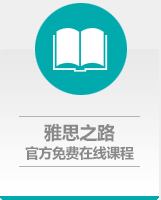You might also be interested in
IELTS Teacher e-newsletter – January 2020 |
|||||
East Asian Assessment Solutions Team at the 5th International Conference of the Asian Association for Language Assessment (October 2018) |
|||||

These workshops were attended by various EA-AST members and were very useful in providing insights into our ongoing projects. Main Conference 19th October Professor Yan Jin from Jiaotong University opened the Conference. The opening talk was given by past president David Qian who welcomed attendees, sponsors and participants and also gave a tribute to Professor Cyril Weir. Keynote speech: From Standards to Operational Rating Criteria: Exploring the Issue of Context in Scale Design Professor Ute Knoch gave the keynote speech on Rating Scale Design and what influences their design. Target language use, curricula, standards frameworks, theory, raters/ tasks/reports and other scales all inform assessment criteria. She stated that using other scales as a basis to formulate new rating criteria can lead to “construct chaos”. Five studies were presented on how various rating scales were created using professional experts, user-oriented language comprehension scales, focus groups, course placement, assessment checklists and curricula goals in that order. Knoch believed that “drawing on other scales and intuition are ill-advised” and argued that context-sensitive criteria increases the precision of the inferences that can be made based on test scores. Localisation Barry O’Sullivan’s talk was on localisation. He asserted that tests must fit the local context and put people at the centre. He outlined three types of localisation: customized from the ground up; customized using variants and customized using existing global, generalised tests for a local context. Professor O’Sullivan also introduced a radical new project in assessing vocabulary lists using difficulty measures rather than frequency of use. Please encourage L2 speakers of English to visit www.vocabularychallenge.org to help ongoing vocabulary list research. Participation on the site will also help Unicef as the British Council are donating 1 penny for every correct answer until they reach the target of £2000. Breakaway sessions 

•As mentioned above, Philip Horne and Dylan Burton presented Olena Rossi’s study on the China Item Writing training and its role in improving participants’ language assessment literacy knowledge. •Alistair Van Moere presented on the assessment of middle school students’ reading ability and text complexity using Aptis and the Lexile measurement in conjunction. These two powerful assessment tools help target reader’s needs for international texts and exams. October 20th Professor Nick Saville presented on the setting of standards for language learning and assessment for multicultural, “plurilingual” learners with multiple language competencies. A lively discussion followed a joint talk on standard-based assessment for diagnostic purposes in Schools and Colleges chaired by Professor Wu Zunmin. The local Chinese context was emphasised in terms of the approach taken. by Johnathan Cruise
|
|||||
 |
 |
 |
 |
 |
|








